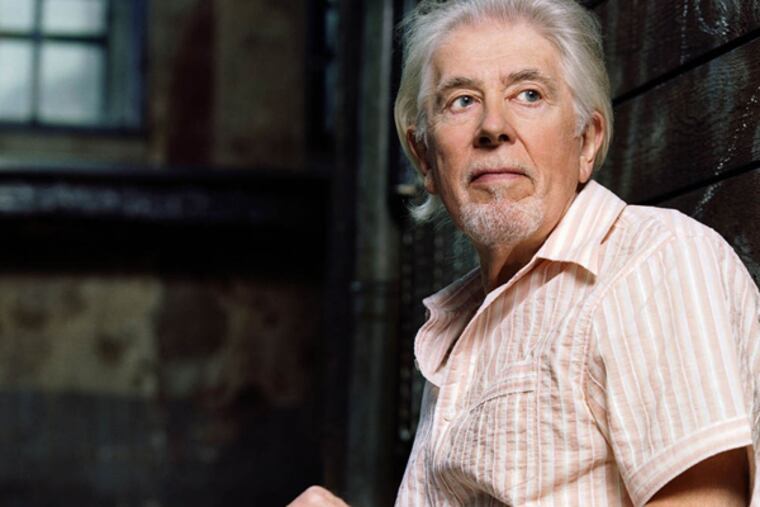Mayall at 80: Still room to move
Brit bluesman John Mayall has an amazing history; if only he'd talk about it.

WHO COULD blame John Mayall for being a bit grumpy? Every time he tries to retire, concert promoters and record labels dangle the moola and lure the verging-on-octogenarian back into the game.
And then pesky music writers pile on, too, craving a schmooze with the "Godfather of British Blues" just because this living legend (actually, long Los Angeles-based) is coming to our time zone, with two shows tonight at the Sellersville Theater.
Mayall once titled an album "No More Interviews." I mentioned that after getting several short answers to my questions. That got him laughing, allowing that the title "was meant in jest, as a marketing ploy to make myself more desirable. I was trading on my early training in advertising."
Raised on his dad's jazz records, self-taught on piano, guitar and harmonica, Mayall didn't turn pro musician until he was 30, after his friend Alexis Koerner opened a blues club in London and was desperate for talent to play there.
Many of the questions Mayall fields concern the many "famous guys" who cut their teeth in his Bluesbreakers band in the 1960s. That's when he was first earning a rep, still intact, as the blues equivalent of an Art Blakey or Benny Goodman - the savvy band leader with whom many young musicians wanted to work because he gave them room to grow.
"I've never really tried musicians out, made them go through auditions," he admitted in our chat, conducted while he was on a car ride to an "I'm not sure where" hotel.
"I just went on reputations and the vibes I got off them."
First of those famed bandmates was Eric Clapton, just before he was nicknamed "God" and moved on to make Cream, along with another Bluesbreaker, Jack Bruce. Then came bassist John McVie, drummer Mick Fleetwood and guitarist Peter Green; they left to form Fleetwood Mac. Later, another Bluesbreaker bust-out, Mick Taylor, went to the Rolling Stones after Brian Jones died.
"Collectively, those guys - except Taylor - were with me for all of three years," Mayall mumbled. "My career's gone on for another 40-some years. And a lot of other equally great musicians have passed through the band and recorded with me over the course of 57 albums.
"Nobody ever asks about Buddy Whittington. He was 15 years with me. Or the three great guys who've been with me the last five years," guitarist Rocky Athas, bassist Greg Rzab and drummer Jay Davenport.
What about guitar greats Coco Montoya, Walter Trout and (for studio sessions) Sonny Landreth? And most especially Jon Mark and Johnny Almond, the soft guitar and sax/flute players who backed Mayall on his most distinctive and successful jazz-tinged, drummer-less concert set, "The Turning Point"?
It was a huge hit in these parts in the prog-rock era of the early '70s, with head-bopping, finger-snapping groovers like "Room to Move," "California" and the protesty "The Laws Must Change."
"The inspiration for that ["Turning Point"] group was actually a saxophone and clarinet player named Jimmy Giuffre, with a song he wrote called 'The Train and the River' and performed in a drummer-less trio with guitarist Jim Hall and bassist Ralph Pena at the Newport Jazz Festival," Mayall said. It's the opening tune in the famed Newport documentary, "Jazz on a Summer's Day."
And why did Mayall give up on the sound, after the follow-up album "Empty Rooms" and the Mark-Almond departure to form their own self-named group?
"I don't think I ever really left it," he said. "I've always made the connection between blues and jazz."
Yes, the guy is on the verge of a big birthday next month, supposedly the reason for this "80th Birthday Celebration" tour. But he says that it's really no big deal, and the show billing is "just marketing, too. Blues is a timeless music that reflects humanity. So you never have to stop playing it."
As for my observation that the blues singer sounded old and wise when he was young, and still does today, Mayall laughed. "I'm lucky my voice is still holding up, or whatever you'd call it. That's a blessing."
Online: ph.ly/Tech